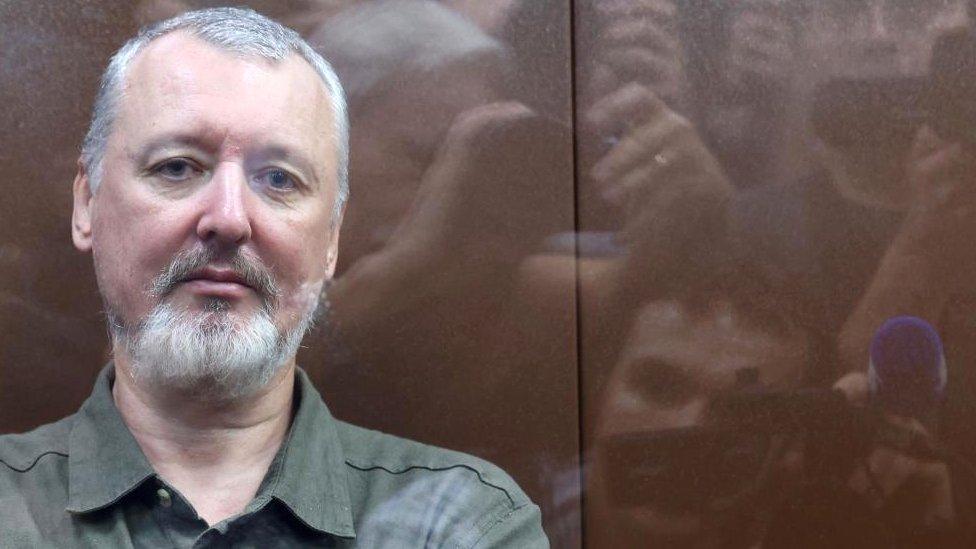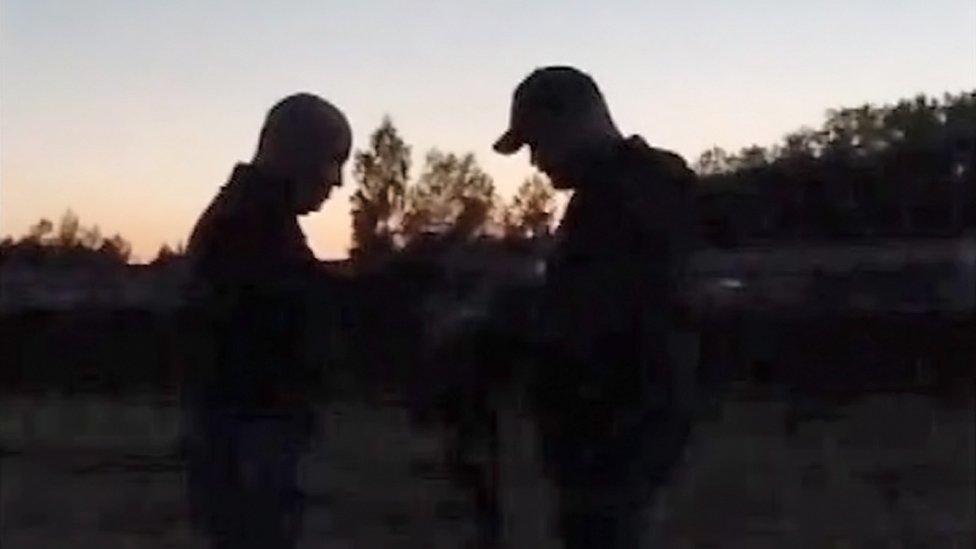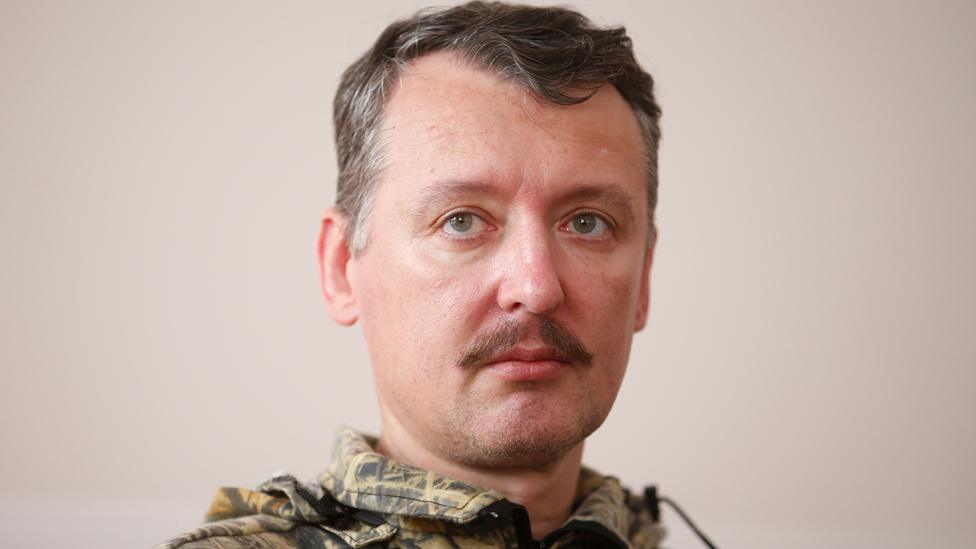Russian hardline Putin critic and commander Strelkov detained in Moscow
- Published

Hours after he was detained in his flat, Igor Strelkov appeared in court in Moscow
Outspoken pro-war blogger Igor Girkin, who has fiercely criticised Russia's military strategy in Ukraine, has been remanded in custody by a court in Moscow, accused of extremism.
The hardline nationalist, also known as Igor Strelkov, could face up to five years in jail.
His wife said he was detained on Friday at their Moscow flat while she was out.
A former FSB intelligence colonel, Strelkov played a key role in Russia's 2014 landgrab of Crimea.
He went on to lead Russia's proxy army in the ensuing war in eastern Ukraine.
Igor Strelkov was one of three men convicted in absentia by a Dutch court last November of murder for his role in a missile strike in 2014 that downed a Malaysia Airlines passenger jet over the conflict area, with the loss of all 298 people on board.
But as the full-scale invasion of last year became increasingly bogged down, Strelkov's criticism of military failings and the commander in chief, President Vladimir Putin, became more vociferous.
"We have already lost," he told social media followers last year.
A few days ago he called the Kremlin leader "a nonentity" and "a cowardly waste of space", says BBC Russia editor Steve Rosenberg.
Strelkov's lawyer, Alexander Molokhov, said that after he had been detained his flat had been searched.
Strelkov later appeared at Meshchansky district court in the north-east of the capital, where the judge rejected his request for the hearing to be held behind closed doors, Ria Novosti agency reports. He will now remain in pre-trial detention until at least 18 September.
The war-blogger has been allowed free rein to criticise the president and the military for a long time, so it is unclear what led Russia's Investigative Committee to charge him at this point with using the internet to appeal for "extremist activity".
Ever since the start of the war, opponents of Russia's so-called special military operation in Ukraine have been handed lengthy jail terms for far milder remarks.
But earlier this week a retired Russian intelligence officer, Vladimir Kvachkov, was charged with "discrediting" the Russian army. He and Strelkov had created the "Club of Angry Patriots", livestreaming their criticism of Russia's political and military leadership.
For many years Strelkov, 53, had been considered untouchable, says BBC Russian's Ilya Barabanov.
That was partly because of his previous role as a colonel in the FSB security service, but also because he was identified as a suspect and later convicted of downing flight MH-17 while he was commander of Russia's proxy force in occupied Donetsk in eastern Ukraine.
Russian investigative website Agentstvo suggested that authorities had revised a previously unspoken rule allowing pro-war bloggers to vent their anger as much as they liked.
Commentator Tatiana Stanovaya said this was a moment that many among the siloviki - the president's inner circle - had eagerly awaited.
Strelkov had long ago "overstepped all conceivable boundaries", external, she said, but the failure of mercenary boss Yevgeny Prigozhin had left the army command with greater leverage to quash its opponents.
Prigozhin's Wagner group has had its powers cut since the botched mutiny last month, and the warlord himself has held back from his earlier expletive-laden tirades against the defence minister and army chief.
This week he appeared in a video, apparently filmed in Belarus, welcoming his fighters and saying that Russia's campaign in Ukraine was a "disgrace we want no part of".
Reports say that of the estimated 25,000 Wagner mercenaries, 10,000 are heading for Belarus while the others are going "on leave". One independent report said that Vladimir Putin had made a final decision that Wagner would cease to exist in Russia itself.
Ukraine's main intelligence directorate welcomed Strelkov's detention as a sign that those inside the Kremlin were approaching an "active phase of internal confrontation".
Related topics
- Published19 July 2023

- Published9 March 2020
